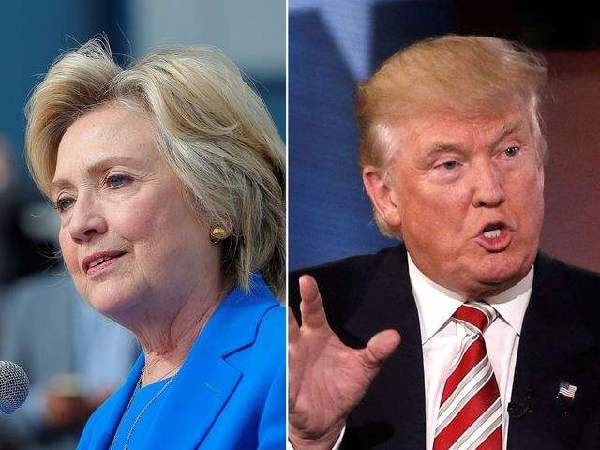


As the presidential candidates of the Democratic and Republican parties begin the last sprint toward the general election, U.S. citizens are becoming more and more frustrated by the political campaign.
WikiLeaks recently promised “significant” disclosures on the U.S. election, war, arms and oil in the coming weeks. It is widely believed that these revelations will add more flames to the already chaotic political show.
Scandals have dogged the two main candidates throughout the 2016 election, which has further increased dissatisfaction among U.S. citizens. According to a recent Gallup poll, 60 percent of registered voters view Donald Trump as the least favorable candidates in 25 years, and Hillary Clinton as the second least favorable.
The tax-related questions for Trump, as well as worries over Clinton’s health and her use of a private email server, have all led to the current state of the election. In their first presidential debate, the two candidates focused more on personal attacks than policies. The Times commented in an editorial that the candidates have neglected the widening gap between the American dream and social reality.
A recent survey showed that voters now perceive the government and congress as the biggest problems needing to be addressed in American society. These concerns come ahead of issues like the economy, employment and immigration. Of course, that doesn’t mean voters don’t care about economic and social issues, but it does show the great and growing concerns that U.S. citizens have about their political system.
Despite protests against money-oriented politics and election scandals, Trump still plans to drop another $140 million on campaign ads. Anticipated to cost as much as $5 billion, most of which comes from special interest groups, the 2016 election is likely to be the most expensive one in history.
People are very clear about the sour fruits of money-oriented politics, and the new U.S. president is unlikely to end political confrontation or even do much to ease discontent toward the government. As British economist Martin Wolf said, growing inequality and slowing productivity have made democracy intolerant and capitalism illegitimate.
For a long time, the U.S. has boasted that its lively election is a sign of its system’s superiority. However, the essential purpose of the election is to provide a driving force for development. The most important task for presidential nominees is not to win the election, but to eventually govern the country.
It's time for the U.S. to take a close, honest look at its arrogant democracy and flawed politics.
This article is edited and translated from 美国选举乱象凸显制度弊端 Source: People's Daily
 Fire brigade in Shanghai holds group wedding
Fire brigade in Shanghai holds group wedding Tourists enjoy ice sculptures in Datan Town, north China
Tourists enjoy ice sculptures in Datan Town, north China Sunset scenery of Dayan Pagoda in Xi'an
Sunset scenery of Dayan Pagoda in Xi'an Tourists have fun at scenic spot in Nanlong Town, NW China
Tourists have fun at scenic spot in Nanlong Town, NW China Harbin attracts tourists by making best use of ice in winter
Harbin attracts tourists by making best use of ice in winter In pics: FIS Alpine Ski Women's World Cup Slalom
In pics: FIS Alpine Ski Women's World Cup Slalom Black-necked cranes rest at reservoir in Lhunzhub County, Lhasa
Black-necked cranes rest at reservoir in Lhunzhub County, Lhasa China's FAST telescope will be available to foreign scientists in April
China's FAST telescope will be available to foreign scientists in April "She power" plays indispensable role in poverty alleviation
"She power" plays indispensable role in poverty alleviation Top 10 world news events of People's Daily in 2020
Top 10 world news events of People's Daily in 2020 Top 10 China news events of People's Daily in 2020
Top 10 China news events of People's Daily in 2020 Top 10 media buzzwords of 2020
Top 10 media buzzwords of 2020 Year-ender:10 major tourism stories of 2020
Year-ender:10 major tourism stories of 2020 No interference in Venezuelan issues
No interference in Venezuelan issues
 Biz prepares for trade spat
Biz prepares for trade spat
 Broadcasting Continent
Broadcasting Continent Australia wins Chinese CEOs as US loses
Australia wins Chinese CEOs as US loses